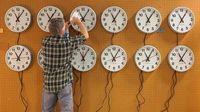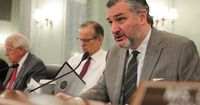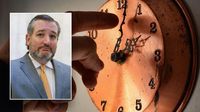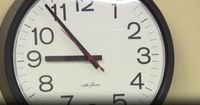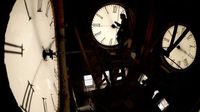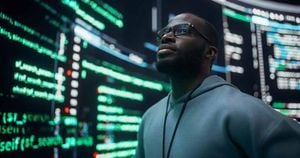On April 10, 2025, a Senate committee convened to address the contentious issue of daylight saving time, a biannual practice that has stirred debate across the nation. The Senate Committee on Commerce, Science and Transportation held a hearing to explore whether the United States should continue the clock-changing ritual that has been in place since the 1960s. This discussion comes as a growing number of Americans express support for a permanent time standard, a sentiment echoed by lawmakers from both parties.
Senator Ted Cruz, the committee chairman, opened the hearing with a light-hearted reference to Cher's classic song, "If I Could Turn Back Time: Should We Lock the Clock?" He emphasized the need for a rational approach to time management, noting the significant impacts of the time changes on health and economic activities. Cruz stated, "Congress has the authority to end this outdated and harmful practice," highlighting the necessity of evaluating whether to adopt either permanent standard time or daylight saving time.
The hearing featured expert testimonies that underscored the implications of the twice-yearly clock adjustments. Dr. Karin Johnson, a practicing physician and neurology professor representing the American Academy of Sleep Medicine, cautioned against the health risks associated with changing the clocks. She noted that the disruptions to sleep patterns can lead to serious health issues, including increased rates of heart attacks and strokes. “Permanent standard time would give more Americans the opportunity to improve their sleep without even trying,” Johnson stated, emphasizing the importance of aligning daily schedules with natural sunlight.
Numerous studies have linked the time changes to a rise in car accidents and fatalities, particularly in the weeks following the clock shifts. Dr. David Harkey, president of the Insurance Institute for Highway Safety, further supported this claim, saying, "We know that darkness is associated with increased risk of fatal crashes." The statistics reveal a troubling trend: accidents tend to spike after the spring transition to daylight saving time, as many drivers find themselves navigating in darker conditions.
The hearing also brought to light the financial implications of maintaining daylight saving time. Jay Karen, chief executive officer of the National Golf Course Owners Association, testified that golf courses thrive on extended daylight hours, particularly in the evenings. He warned that eliminating daylight saving time could result in an 8% revenue loss for the industry. "People are far more inclined to go outside and pursue recreation and outdoor activities after dinner than before breakfast," Karen explained, reinforcing the economic argument for keeping the current system.
While the sentiment for a change is palpable, consensus on the preferred solution remains elusive. A Gallup poll conducted earlier this year found that 54% of Americans are ready to stop the biannual clock changes, yet opinions diverge on what the permanent solution should be. Among those wanting to eliminate the switch, 48% favored year-round standard time, while 24% preferred permanent daylight saving time. This division complicates legislative efforts to enact a change.
Senator Lisa Blunt Rochester, a Democrat from Delaware, echoed the frustrations of many Americans, stating, "People across our country are tired of the constant cycle of falling back and springing forward." She called for a thoughtful solution that considers the diverse needs of different states. Blunt Rochester's remarks highlight the complexity of the issue, as what works in one region may not be suitable for another.
Despite the challenges, there have been multiple legislative efforts to address daylight saving time. In 2022, a bill to make daylight saving time permanent passed the Senate but failed to gain traction in the House. Secretary of State Marco Rubio had previously introduced similar legislation, which garnered bipartisan support but ultimately stalled. President Donald Trump, who has previously expressed his support for abolishing daylight saving time, referred to the issue as a "50/50 issue," indicating the ongoing uncertainty surrounding the topic.
As the debate continues, lawmakers are faced with the task of weighing the economic benefits against the health risks associated with the time changes. The committee's hearing did not indicate a clear preference for either daylight saving time or standard time, but it did emphasize the need for a decision that prioritizes public health and safety.
Scott Yates, founder of the Lock the Clock movement, also testified, advocating for a permanent solution that eliminates the biannual clock changes. He pointed out that the current system has been in place since World War I and is ripe for reform. "This is our opportunity to finally fix it," Yates asserted, calling for a change that reflects the needs of modern society.
In conclusion, the Senate's exploration of daylight saving time highlights a broader conversation about how time management impacts our lives. With health experts, lawmakers, and the public all weighing in, the potential for change looms on the horizon. As discussions progress, the hope is to find a solution that balances the diverse needs of Americans while ensuring their well-being and safety.
